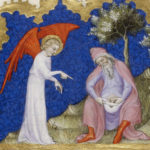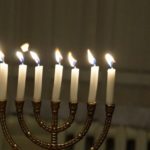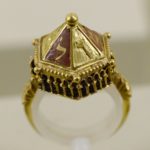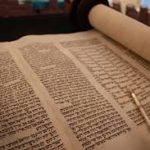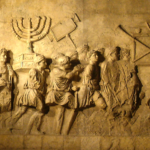Some thoughts on the Torah portion Mi-Keytz.
The portion begins with the phrase Va-yehi mi-keytz shnosayim yomim u-Far’oh choleym, “And it happened at the end of two years that Pharaoh was dreaming . .”
After Pharaoh’s first dream, we’re told, va-yikatz Par’oh, “and Pharaoh woke up’; after the second dream, va-yikatz Par’oh ve-hineh cholom, “and Pharaoh woke up and behold, it was a dream.” I was intrigued by the similarity between keytz, “end” and yikatz, “roused from sleep, awoke.” Despite sounding alike, it would seem that these two words have opposite meanings. Awakening usually implies the start of a new day, a fresh start-just think of the book Awakenings by Dr. Oliver Sacks, and the movie based on it with Robin Williams and Robert DeNiro based on it, about the catatonic patients he revived. In the context of the Torah portion, however, these meanings are linked.
What are the two years that our portion’s first verse refers to?
The previous portion, Va-Yeysheyv, tells us: the two years that Yosef spent lingering in prison after the cupbearer should have asked Pharaoh to free him. But Yosef will, in fact, be freed as a result of the dreams that this verse introduces because the cupbearer will remember Yosef’s accuracy in interpreting his own dreams. Thus, while keytz on a literal level signifies the end of one nightmarish phase of Yosef’s life, it also hints that he is about to “awaken” into a new life of power, prestige, and blessing.
How, then, does Pharaoh’s awakening from his dreams signify an ending?
To figure this out, we actually have to look forward-to Sefer Shmos, the Book of Exodus. There we see a Pharaoh who is the absolute master of pagan Egyptian society, and the Pharaohs themselves were considered (or considered themselves) divine. The Pharaoh that Moshe Rabbenu will deal with will be so wrapped up in his delusion of superiority that he will refuse to acknowledge that there could be One higher and more powerful than himself, even when he sees the proof of Ha-Shem’s power with his own eyes.
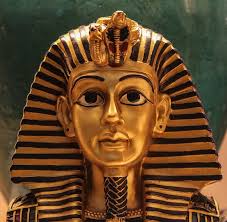 This conception of royal omnipotence is what ends for the Pharaoh that Yosef encounters in our Torah portion with va-yikatz Par’oh, and Yosef’s Pharaoh yields to it with surprising alacrity. As soon as Yosef interprets the dreams that none of his pagan priests could interpret, he makes Yosef his viceroy or prime minister and actually concedes the entire administration of the country to him. He exclaims hoydia’ Elokim es kol zos, “. . . G-d has made all this known to you . . .” He makes Yosef “second only to Pharaoh” because he recognizes that Yosef’s insight comes from power to Whom he himself can only be second at most. In the end, giving up his illusion of cosmic superiority actually works to Pharaoh’s worldly advantage, because Yosef consolidates royal power on his behalf.
This conception of royal omnipotence is what ends for the Pharaoh that Yosef encounters in our Torah portion with va-yikatz Par’oh, and Yosef’s Pharaoh yields to it with surprising alacrity. As soon as Yosef interprets the dreams that none of his pagan priests could interpret, he makes Yosef his viceroy or prime minister and actually concedes the entire administration of the country to him. He exclaims hoydia’ Elokim es kol zos, “. . . G-d has made all this known to you . . .” He makes Yosef “second only to Pharaoh” because he recognizes that Yosef’s insight comes from power to Whom he himself can only be second at most. In the end, giving up his illusion of cosmic superiority actually works to Pharaoh’s worldly advantage, because Yosef consolidates royal power on his behalf.
Just how Yosef accomplishes that-and his method’s moral ramifications and historical consequences-is a subject for an entirely different article.


